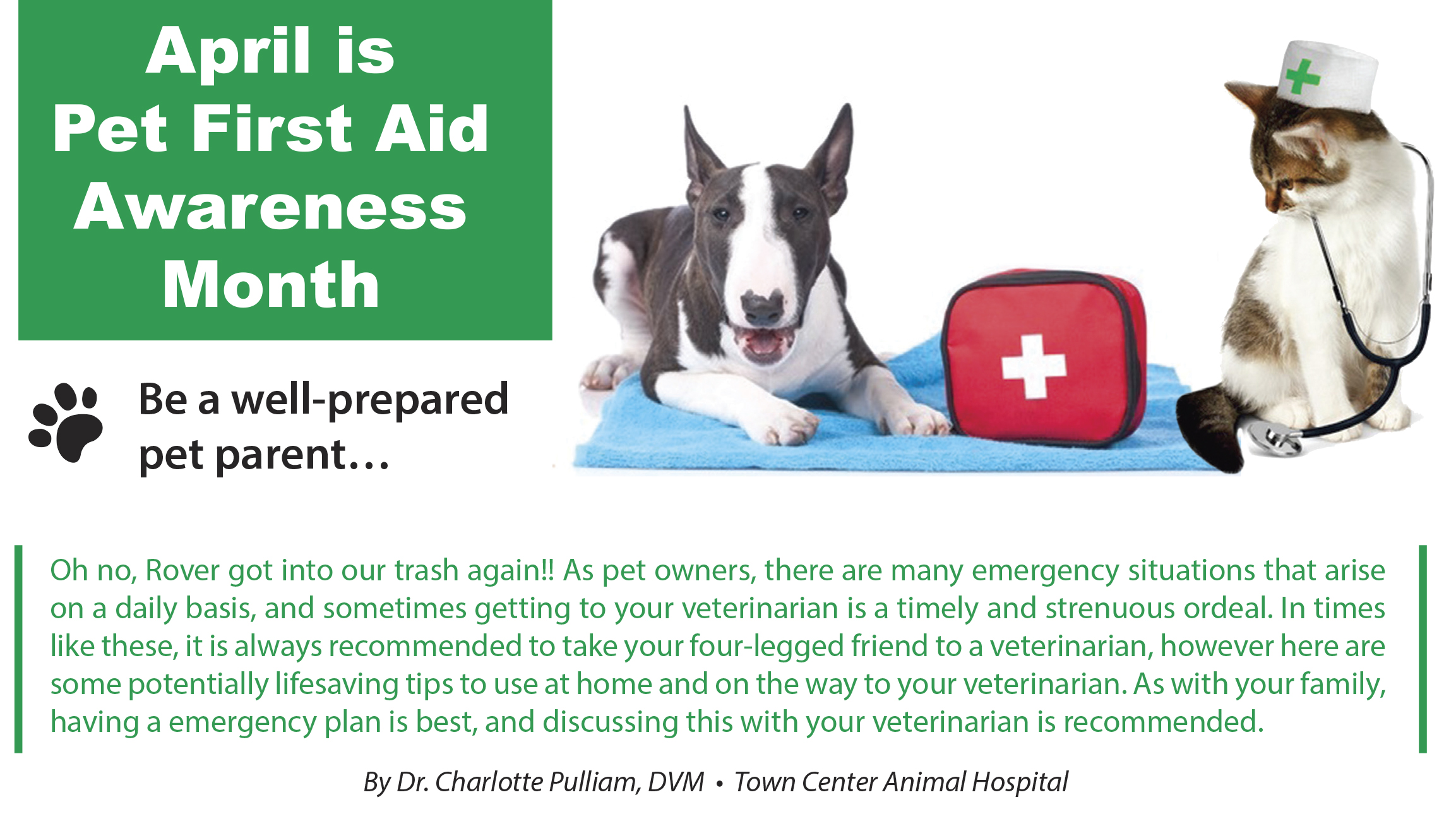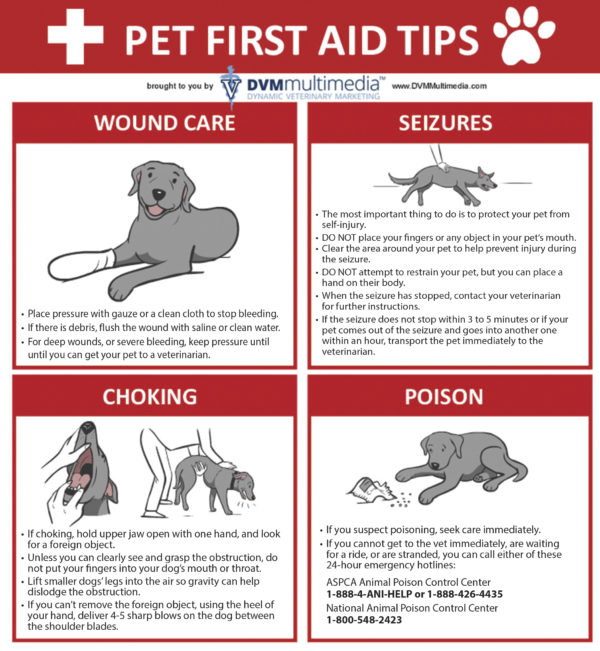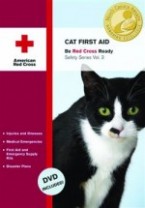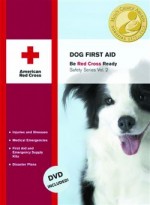
ABC’S! No, singing the alphabet won’t save our furry friends, but focusing on Airway, Breathing, and Circulation/Cardiac function can. Airway: Focusing on anything that could block the normal flow of oxygen into the lungs. Saliva, vomitus, or foreign material (rocks, toys, sticks). If a foreign object is stuck, do not use excessive force to try to remove the object, and never pull on a string! BE CAREFUL – PAINFUL OR SCARED PETS MAY BITE! Breathing: Focus on trying to allow the animal to start breathing again, or breathe more efficiently. Make sure the head is straight, pull gently on the tongue to allow for better breathing. Mouth to nose rescue breaths can be administered, but again use caution as not to get bitten. Circulation/Cardiac Function: Assess by feeling for a pulse inside the inner thigh region, also by placing your hand over the left side of the chest. Further assistance with CPR or ABC’s can be discussed with your veterinarian.
As the weather warms up, another common emergency is an external laceration or wound. As mentioned before, it is always best to seek professional veterinary advice, although here are some tips to try to manage a severely bleeding wound. Try to apply pressure to the bleeding with clean gauze or cloth. If the laceration is superficial, cleaning the wound might help, only using saline, betadine, or chlorhexadine.
Summer parties, BBQ’s, Pool parties – Poisons? Yes, many pets will sneak a “treat” in or some will go for the whole table! As a general rule of thumb, human food is for humans, and pet food is for pets! Many human foods can be toxic, and some even life threatening! Grapes, fried foods, chocolate, alcohol, garlic, onions, and candy are common items found at social gatherings, ALL of which are toxic to dogs and cats. Try keeping a treat stash for your furry family members, or better yet maybe putting them in a quiet room for some rest during the event. These events can be a lot of fun for us, but the amount of people and noise can sometimes overwhelm our pets, and can unknowingly even put them in harms way!
Remember to always STAY CALM! Just as humans can sense your energy, animals can too! Keeping a level head can sometimes help save your pets life. Also remember these are just tips that MAY save your pets life, but routine exams and bloodwork can catch problems earlier, possibly eliminating these emergencies. Make a plan, stay calm, and always contact your veterinarian.


PLEASE REMEMBER THESE IMPORTANT POINTS:
- Do not leave an animal in a car even for short periods of time in warm weather. The inside temperature of the car can quickly reach 120 degrees even with the windows cracked open.
- Watch out for heat stroke – when the temperatures rise heat stroke is a problem since pets are not acclimated to the warmer weather. Animals love to play and may not stop playing even if they are becoming overheated. The signs of heat stroke are heavy panting, inability to calm down even when lying down, brick red gums, and a fast pulse rate. If you suspect your pet is suffering from heat stroke you should take their temperature rectally. If their temperature is above 105 degrees cool your pet down until the temperature drops to 103. The easiest way to do this is by using a water hose. You should take your pet to the veterinarian as soon as possible as heat stroke can lead to severe organ dysfunction and damage.
- Be careful when taking your dog for walks on streets and sidewalks. These areas get very hot and can burn your dog’s paws.
- Open windows and doors can be a pet hazard. Windows and doors are more likely to be open as the weather gets warmer and pets are likely to try to get out.
- Spring plants can also be a pet hazard – do not use plants which are poisonous to animals. For instance, many lilies are very poisonous to cats. Visit the ASPCA Poison Control web site to find out which plants and flowers are poisonous to animals.
A pet is part of the family. Just like any other family member, pets deserve to be cared for and protected. Pet First Aid Awareness Month is a great time for people to learn how to protect their pet and keep them healthy.
The American Red Cross has developed two excellent resources. Visit their store at www.redcrossstore.org.


